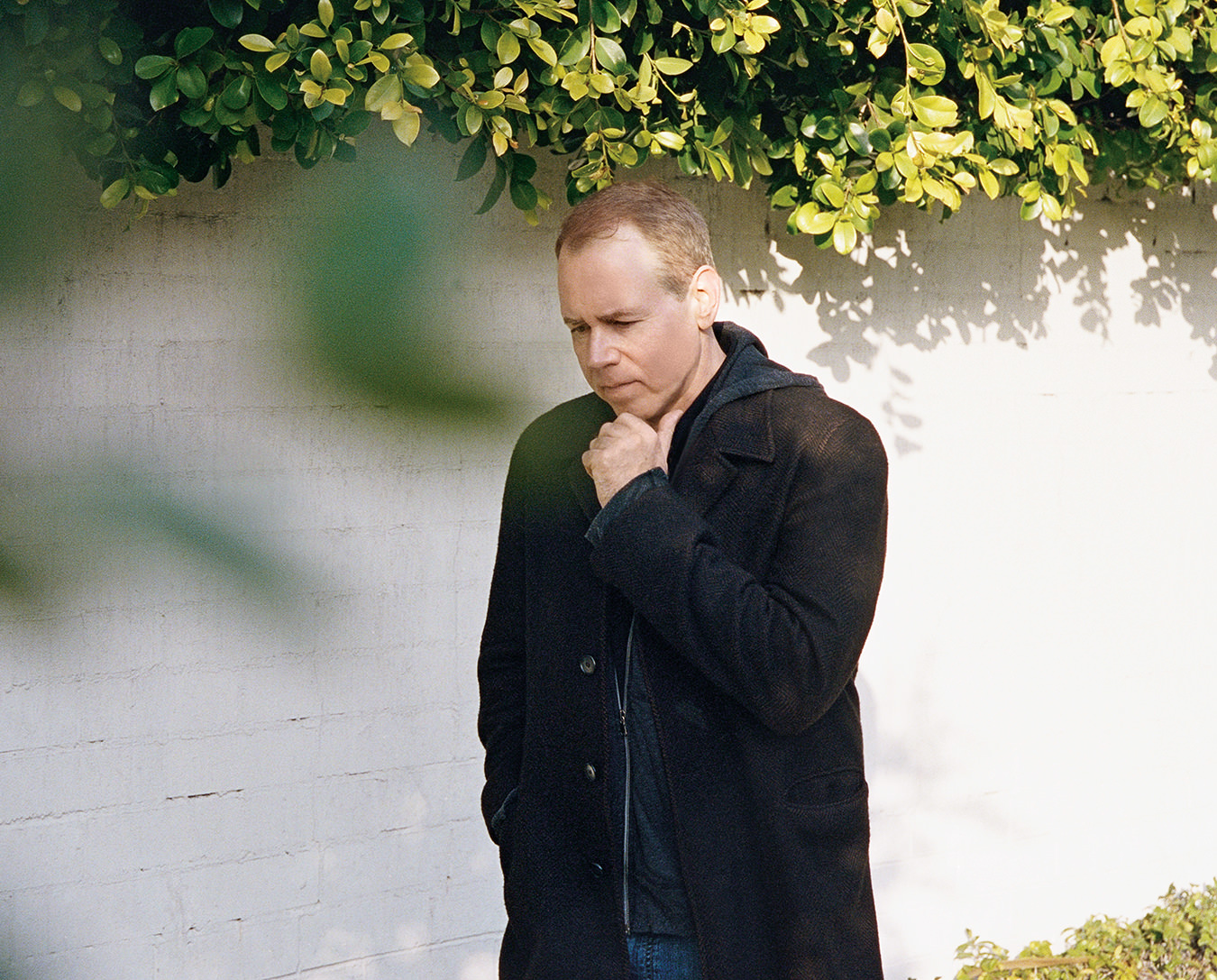David Sedaris
Comic relief.

David Sedaris is seated on a banquette in the restaurant of Vancouver’s Four Seasons Hotel. He’s fingering a flower clipped to the lapel of his blazer and trying to come up with reasons to live. “Another Coen brothers movie,” he says finally. “Another book by Tobias Wolff. The end of Game of Thrones.” After a long pause, he flashes a gap-toothed grin. “I guess I just don’t have that many reasons to live—not as many as I used to.”
We’ve been drinking coffee and talking about an entry in his first volume of journals, Theft by Finding: Diaries 1977–2002, published earlier this year. It’s from February 1988, and the aspiring writer has just broken up with his boyfriend. The entry itself says nothing about the difficult split, instead simply listing reasons not to die. Among them: “writing a published book,” “outliving my enemies,” and “being interviewed by Terry Gross on Fresh Air.” The passage is quintessential Sedaris—wry, offbeat, and darkly funny. And like many from the author’s early years, this particular entry also serves as a signpost, marking both where he’s been and how far he’s come.
When the book opens, Sedaris is a 20-something slacker working odd jobs, doing crystal meth, hitchhiking across North America, and hanging out at the International House of Pancakes. Contrast that with his glamorous life today: wealthy, world-famous, living in the English countryside with his long-time partner (painter and set designer Hugh Hamrick), and travelling the globe doing sold-out readings from his bestselling books. It’s quite a leap, and one that Theft by Finding delineates in 500-plus pages of short, revealing vignettes.
The picture that emerges is one of a man who’s lived the extremes of American culture. The 60-year-old literary icon has experienced, first-hand, the underbelly of America, from KKK members on construction sites to homophobic slurs, fistfights, roach-infested apartments, and white-haired women counting out pennies for IHOP meals. But he’s also mingled with the One Per Cent, jetting between New York, London, and Paris; attending garden parties at Buckingham Palace; and retiring to French chalets. Ask Sedaris about the content of his journal these days, and he rolls his eyes. Reading his current diary horrifies him, he says, likening its tone to Dorothy Parker’s short story, “From the Diary of a Lady,” in which a pampered socialite complains about “revolting” champagne as the world falls apart around her.
Self-deprecating jokes aside, the banal moments recorded in Sedaris’s diary entries—odd conversations, bizarre interchanges, delightful eccentrics—are often more revealing about the state of the world, and particularly America, than all the polemics out there. And Sedaris is just as caustic about well-heeled elites as he is about Southern rednecks. At this particular moment, in fact, we’re camped out beside the restaurant’s roaring fire, sweating, having moved to avoid a pack of loud alpha-male, master-of-the-universe types. “Haven’t you just had it with men?” he deadpans.
David Sedaris has honed a singular voice: contrarian, pitch-perfect funny, and, occasionally, emotionally devastating.
It’s a classic Sedaris aside, the sort avid fans will no doubt be familiar with—along with much of his biography, which is well tread in his essays. Born in Johnson City, New York, Sedaris was raised in Raleigh, North Carolina, in a middle-class Greek-American family. His mother was a charismatic drinker, he and his five siblings (including comedian Amy Sedaris) her gleeful audience. His father, meanwhile, was the sort of man who, when asked by a reporter if he ever expected to see his son performing at Carnegie Hall, replied, “Well, I expected to see him cleaning Carnegie Hall.”
Growing up, Sedaris envisioned a bigger life than his hometown could offer, and in the early 1980s he made his escape, enrolling at the School of the Art Institute of Chicago. He eventually resettled in New York, and it was there, at an open mic night, that he was discovered by renowned radio host and producer Ira Glass (of This American Life fame). Glass broadcasted Sedaris’s “SantaLand Diaries”, a sardonic account of working as a Christmas elf at Macy’s, helping him land a deal for his first book, Barrel Fever. He’s since written eight more, including Me Talk Pretty One Day and Let’s Explore Diabetes with Owls, with more than 10 million copies in print in 29 languages. In the process, Sedaris has honed a singular voice: contrarian, pitch-perfect funny, and, occasionally, emotionally devastating.
Because here’s the thing: while Sedaris has never been interested in exploring his internal world, he’s utterly unafraid to confront the gut-wrenching facts of his life, including his sister Tiffany’s suicide, his mother’s alcoholism, and his father’s inability to connect. When we meet, Sedaris is still sad about a recent call with his dad. As a young man, he always knew that his father didn’t like him, he says. As painful as that was, in the end, he believes he needed his father to work against, needed a fear of failure to drive him to succeed. “I think that had a lot to do with the way my life turned out,” he says. “And I’m grateful.”
It’s hard to imagine probing such a contentious relationship in print, making its details public, and risking family drama. But Sedaris says he can’t worry about that. Recently, for instance, a staffer from The New Yorker called his father to fact-check a story about his mother’s battle with alcoholism, and his father got upset that he’d written about the junk in his home. “He said, ‘That’s a lie!’ And then the fact-checker called my sister Amy, who’s like, ‘He’s got a microwave in his driveway.’ ” Sedaris continues: “What’s funny is that that’s what bothered my father. It’s so blatantly true. When you walk into my father’s house, you are overwhelmed by the scent of mouse urine. My father’s house is a falling-down wreck filled with garbage. And I’m not going to leave that out.” Because, he says smiling, “He voted for Trump.” We both laugh. “It’s true! If he had voted for Clinton, I might think, ‘Well, okay, I’ll cut that part of the story out.’ ”
Sedaris’s own character flaws are, famously, also fair game. Though he quit drinking in 1999 and smoking in 2007, he still grapples with obsessive tendencies. He’s compelled to walk, he says, compelled to pick up trash on the side of the road near his West Sussex home, compelled to write. At one time, he was even compelled to feed spiders. “I never know what the next one will be,” Sedaris says. “You think, ‘Gee, 10 years from now I could be making dolls out of apple cores.’ It could be anything.
“Hey,” he adds, “that’s something to live for.”
_________
Never miss a story. Sign up for NUVO’s weekly newsletter, here.




